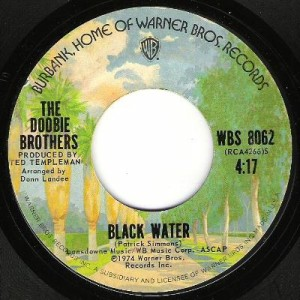
[UPDATE: In a more recent post, I provide a detailed legal analysis of how the fair use exception to copyright laws applies to using a song snippet in a novel.]
Without any particular design, Psycho-Tropics ended up littered with references to popular songs. Some reviews commented positively on them for capturing moods, eras and emotions. No surprise. Several studies show the power of music to evoke emotion and memory (here’s one). How countless are the times we hear a song that snaps us back to the past?
Unfortunately, the prevailing view is that while it is permissible for you to use the name of a song in your novel, you cannot quote any lyrics without infringing the copyright. This position is both a crying shame and, I believe, legally unjustified.
Precisely because evoking emotion is such a vital part of good novel-writing (an artform dating back to medieval times), music artists, publishers and courts should be generous in applying the “fair use doctrine” of the U.S. Copyright Act to novelists who think enough of an artist’s song to reference it as part of their own creative work. It’s an homage!
To be clear, I’m arguing for leniency for quoting only a small part of a song’s lyrics, maybe one line or fifteen words. Songs are usually short, so borrowing even a portion of a song has a bigger impact, percentage-wise, than quoting, say, a lengthy paragraph from an academic text.
Blog posts on the subject will advise you not to use any portion of a song lyric without permission. That’s good advice to stay on the safe side, but getting permission isn’t a realistic option for most writers or publishers. What is overlooked is the lack of any apparent legal authority to support that position, which I analyze in a more recent post.
Anyway, the real purpose of this post is that a friend suggested the song references in Psycho-Tropics made for an interesting playlist, so I assembled them on Spotify. It’s an eclectic list, from the Carpenters to Muddy Waters. Here’s the Psycho-Tropics Soundtrack in order of song appearance. One of the songs has major plot significance. Guess which one. 
• Rainy Days and Mondays – Carpenters
• Mama Told Me Not to Come – Three Dog Night
• Black Water – Doobie Brothers
• Cheeseburger in Paradise – Jimmy Buffett
• You’re Sixteen – Ringo Starr
• That’s the Way (I Like It) – K.C. and the Sunshine Band
• Reeling in the Years – Steely Dan
• Southbound – Allman Brothers
• Highway Star – Deep Purple
• Dancing Machine – Jackson Five
• Heart of Gold – Neil Young
• Don’t You Forget About Me – Simple Minds
• Brown-Eyed Girl – Van Morrison
• Top of the World – Carpenters
• Superstition – Stevie Wonder
• Buffalo Soldier – Bob Marley
• Don’t Fear the Reaper – Blue Oyster Cult
• Got My Mojo Working – Muddy Waters
• Knock Three Times – Tony Orlando and Dawn
• You’ve Lost That Lovin’ Feeling – The Righteous Brothers
• Thank You (Falettinme Be Mice Elf Agin) – Sly & The Family Stone
• Who Can it be Now? – Men at Work
Postscript: Here’s my general overview about legal issues facing indie writers and publishers. Regarding novelists referencing songs, several good sources exist. Here’s a blog post and scholarly law journal on the subject for those who want to dig deeper

Trackbacks/Pingbacks